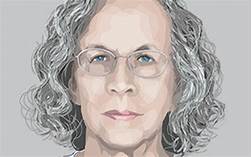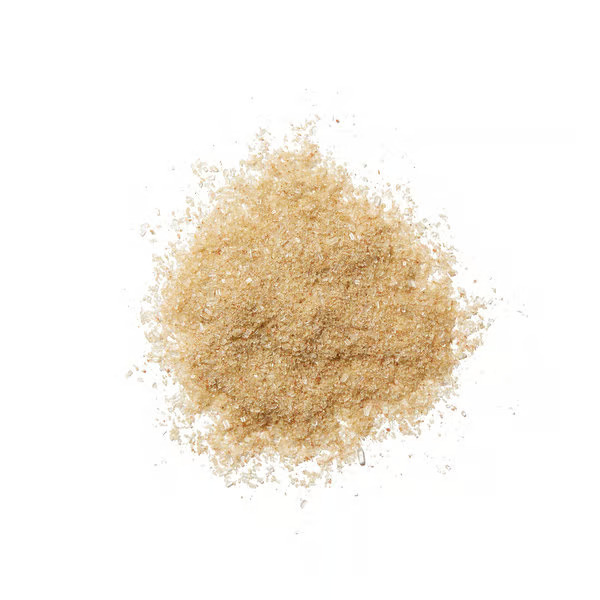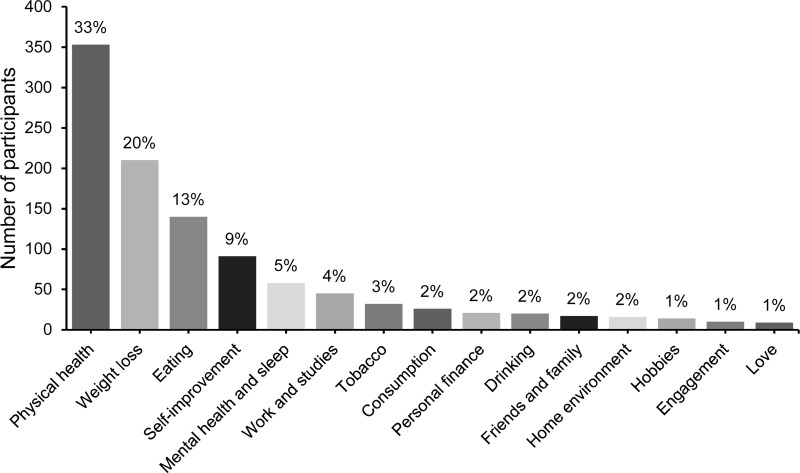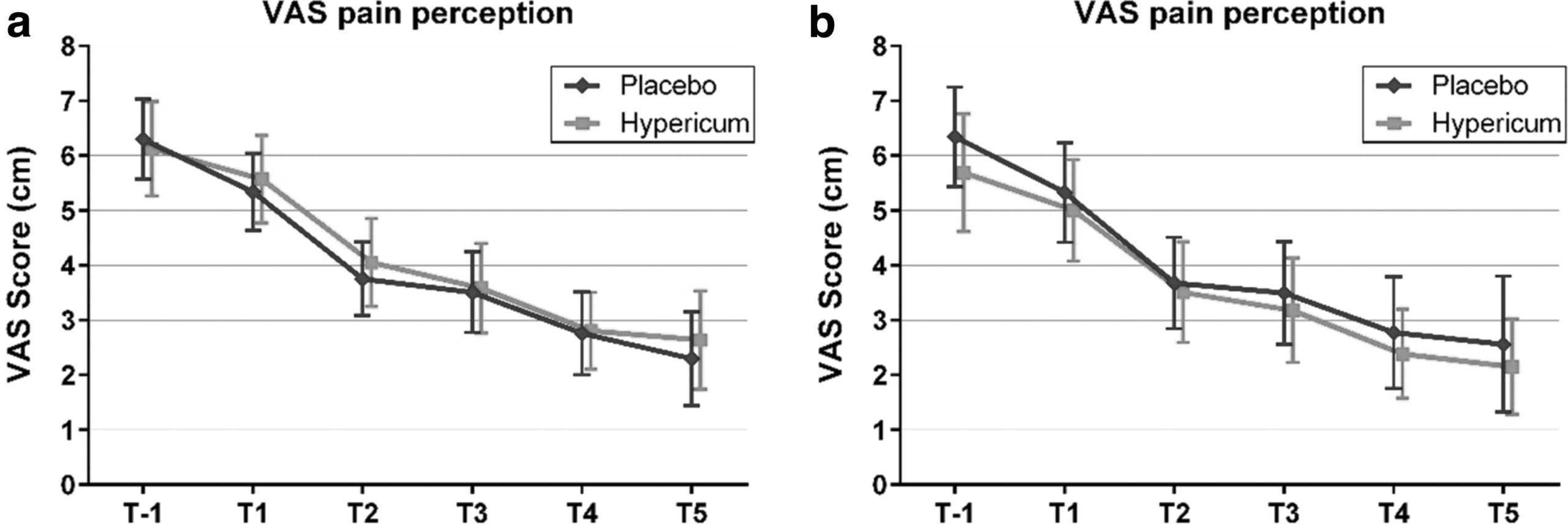pseudo-science
Yesterday, Harriet’s many friends received the sad news of her unexpected death on 11 January. Harriet was not just a good and loyal friend, she was a tirelessly working, determined, and effective skeptic. Her work focussed on so-called alternative medicine (SCAM), and thus the two of us were on the same wavelength. 
Harriet’s husband, Kirk, posted this short note about her death on social media:
I know Harriet’s work was followed and admired by many of you. It is with great sadness that I must tell you my beloved wife passed away quietly and unexpectedly in her sleep last night. At this moment, she would probably simply ask you to have a kind thought for her, be kind to each other and continue to support her belief in the truth.
I feel that, without intending to, Kirk described Harriet’s character very well. She was a quiet and kind person. Yet she inspired many, and her influence was considerable. Harriet Hall had been the founding member of skeptic organizations, author of books and countless articles, recipient of awards, author of many brilliant lectures, and much more.
Harriet and I have met in person only 2 or 3 times. But we did keep in contact and exchanged many emails. Most generously, she published reviews of most of my books and was often immeasurably supportive of my work.
Harriet Hall will be remembered by skeptics around the world for her quiet enthusiasm, her kindness, and her honesty. I will always remember her for coining an absolutely perfect term for the pseudo-research that plagues the field of SCAM:
TOOTH FAIRY SCIENCE
I lost a friend; the world lost a great skeptic.
We will all miss you, Harriet!
We have discussed the UK conservative MP and arch-Brexiteer, Andrew Bridgen, and his anti-vax stance before. Yesterday, it has been reported that he lost the Tory whip, i.e. he was expelled from the Tory party. The reason for this step is that he had taken to social media and claimed the Covid vaccine to be the “biggest crime against humanity since the holocaust”.
The North West Leicestershire MP has been vocal in remarks questioning the coronavirus vaccine.
On Wednesday he shared an article on vaccines on Twitter, adding: “As one consultant cardiologist said to me, this is the biggest crime against humanity since the Holocaust.”
Renouncing Bridgen’s right to sit as a Tory MP in Parliament, Conservative chief whip Simon Hart said: “Andrew Bridgen has crossed a line, causing great offence in the process. “As a nation, we should be very proud of what has been achieved through the vaccine programme. The vaccine is the best defence against Covid that we have.  “Misinformation about the vaccine causes harm and costs lives. I am therefore removing the whip from Andrew Bridgen with immediate effect, pending a formal investigation.”
“Misinformation about the vaccine causes harm and costs lives. I am therefore removing the whip from Andrew Bridgen with immediate effect, pending a formal investigation.”
Earlier, former Cabinet minister Simon Clarke had condemned his colleague’s tweet referencing the Holocaust, calling it “disgraceful”.
Bridgen is currently already suspended from the Commons after he was found to have displayed a “very cavalier” attitude to the rules in a series of lobbying breaches. MPs agreed on Monday to suspend the North West Leicestershire MP for five sitting days from Tuesday.
Comments from different sources are not flattering for Bridgen:
- Karen Pollock, the chief executive of the Holocaust Educational Trust, said Bridgen’s tweet was “highly irresponsible, wholly inappropriate and an elected politician should know better”.
- Anneliese Dodds, the Labour chair, said: “Andrew Bridgen has been spreading dangerous misinformation on Covid vaccines for some time now. He could have been disciplined weeks ago. “To invoke the Holocaust, as he did today, is utterly shameful, but it should never have reached this point.”
- Andrew Percy, the Conservative MP who is vice-chair of the all-party group against antisemitism, called the comment “disgusting”. Asked by Times Radio if Bridgen should be allowed to stand again, Percy said: “I don’t think anybody who believes this kind of crap should, but that’s a matter for the whips not for me.”
- John Mann, the former Labour MP who is now a non-affiliated peer and the government’s independent adviser on antisemitism, said Bridgen should not be allowed to stand again as a Tory. “There is no possibility that Bridgen can be allowed to stand at the next election,” he said. “He cannot claim that he didn’t realise the level of offence that his remarks cause.”
____________________________
To the best of my knowledge, this is the first time that a UK politician has been punished in this way. But it may well be also the first time that a sitting UK politician has uttered such insane stupidity. Bridgen’s chronic ineptitude is all the more significant as he really should know better. He studied genetics and behaviour at the University of Nottingham and graduated with a degree in biological sciences!
Here are some reactions from people commenting on Twitter about the twit:
- Tory MP, Andrew Bridgen highlights… – Lies in court over family dispute and ordered by judge to pay £800k – Suspended for breaching MP lobbying rules – Thought all Brits entitled to Irish passport after Brexit – Likens vaccines to holocaust What a guy.
- Spreads a dangerous, baseless smear his party colluded in a vaccine Holocaust and at the same time manages to insults victims of a grotesque wartime Holocaust. Conspiracy theorist Andrew Bridgen’s lost the plot. See no way back for the Tory MP now.
- Grubby and despicable: Tory MP Andrew Bridgen loses whip over ‘dangerous’ Covid vaccine claims
- To be fair, Bridgen kept the whip after saying the MI5 knew about the pandemic six months early, then colluded with shadowy elites to impose needless restrictions for their own nefarious ends. So the bar is high.
- Politicians like Andrew Bridgen have succeeded in bringing conspiracy theories into the mainstream. They need to be called out, their arguments dismantled and their political influence cast out to the fringes where it belongs.
- A Holocaust survivor has condemned a Tory MP’s “mind-boggling ignorance” after he compared the mass genocide of Jewish people during World War II to the COVID vaccine rollout
- Many congratulations to Andrew Bridgen on his imminent selection as the Reform Party candidate for North West Leicestershire in the 2024 election
- Andrew Bridgen. Perjury, bullying, misuse of money, months of anti-vaccine garbage, finally loses whip after comparing vaccination to the Holocaust. Scum.
- Six million Jews were murdered in the Holocaust. COVID vaccines have saved millions. The false and outrageous comparisons must end.
- Andrew Bridgen suspended as Tory MP he said: “As one consultant cardiologist said to me, this is the biggest crime against humanity since the Holocaust.” Crucially a cardiologist saying this too. Who are they? Should GMC act in same way as Whips Office?
The prime candidate for the cardiologist in question must, of course, be Aseem Malhotra who also appeared on September 27, 2022, in a press conference with the World Council for Health — a group that has previously spread vaccine misinformation — to call for the “immediate and complete suspension of Covid-19 vaccine.”
Who was it that coined the bon mot: We were all born ignorant but to remain so requires hard work
I have tried!
Honestly!
But at present, it is simply not possible to escape the revelations and accusations by Harry Windsor.
So, eventually, I gave in and had a look at the therapy he often refers to. He claims that he is deeply traumatized by what he had to go through and, to help him survive the ordeal, Harry has been reported to use EMDR.
Eye Movement Desensitization and Reprocessing (EMDR) is a fringe psychotherapy that was developed to alleviate the distress associated with traumatic memories. It is supposed to facilitate the accessing and processing of traumatic memories and other adverse life experiences with a view of bringing these to an adaptive resolution. The claim is that, after successful treatment with EMDR therapy, affective distress is relieved, negative beliefs are reformulated, and physiological arousal is reduced.
During EMDR therapy the patient must attend to emotionally disturbing material in brief sequential doses while simultaneously focusing on an external stimulus. Therapist-directed lateral eye movements are commonly used as external stimulus but a variety of other stimuli including hand-tapping and audio stimulation can also be employed.
Francine Shapiro, the psychologist who invented EMDR claims to have serendipitously discovered this technique by experiencing spontaneous saccadic eye movements in response to disturbing thoughts during a walk in the woods. Yet, as GM Rosen explains, this explanation is difficult to accept because normal saccadic eye movements appear to be physiologically undetectable and are typically triggered by external stimuli.
Shapiro hypothesizes that EMDR therapy facilitates the access to the traumatic memory network, so that information processing is enhanced, with new associations forged between the traumatic memory and more adaptive memories or information. These new associations are alleged to result in complete information processing, new learning, elimination of emotional distress, and development of cognitive insights.
EMDR therapy uses a three-pronged protocol:
- (1) the past events that have laid the groundwork for dysfunction are processed, forging new associative links with adaptive information;
- (2) the current circumstances that elicit distress are targeted, and internal and external triggers are desensitized;
- (3) imaginal templates of future events are incorporated, to assist the client in acquiring the skills needed for adaptive functioning.
The question I ask myself is, of course: Does EMDR work?
The evidence is mixed and generally flimsy. A systematic review showed that “limitations to the current evidence exist, and much current evidence relies on small sample sizes and provides limited follow-up data”.
What might be particularly interesting in relation to Harry Windsor is that EMDR techniques have been associated with memory-undermining effects and may undermine the accuracy of memory, which can be risky if patients, later on, serve as witnesses in legal proceedings.
Personally, I think that Harry’s outbursts lend support to the hypothesis that EMDR is not effective. In the interest of the royal family, we should perhaps see whether so-called alternative medicine (SCAM) does offer an effective treatment against navel gazing?
It has been reported that a German consumer association, the ‘Verbraucherzentrale NRW’, has first cautioned the manufacturer MEDICE Arzneimittel Pütter GmbH & Co. and then sued them for misleading advertising statements. The advertisement in question gave the wrong impression that their homeopathic remedy MEDITONSIN would:
- for certain generate a health improvement,
- have no side effects,
- be superior to “chemical-synthetic drugs”.
The study used by the manufacturer in support of such claims was not convincing according to the Regional Court of Dortmund. The results of a “large-scale study with more than 1,000 patients” presented a pie chart indicating that 90% of the patients were satisfied or very satisfied with the effect of Meditonsin. However, this was only based on a “pharmacy-based observational study” with little scientific validity, as pointed out by the consumer association. Despite the lack of evidence, the manufacturer claimed that their study “once again impressively confirms the good efficacy and tolerability of Meditonsin® Drops”. The Regional Court of Dortmund disagreed with the manufacturer and agreed with the reasoning of the consumer association.
“It is not permitted to advertise with statements that give the false impression that a successful treatment can be expected with certainty, as suggested by the advertising for Meditonsin Drops,” emphasizes Gesa Schölgens, head of “Faktencheck Gesundheitswerbung,” a joint project of the consumer centers of North Rhine-Westphalia and Rhineland-Palatinate. According to German law, this is prohibited. In addition, the Regional Court of Dortmund considered consumers to be misled by the advertising because the false impression was created that no harmful side effects are to be expected when Meditonsin Drops are taken. The package insert of the drug lists several side effects, according to which there could even be an initial worsening of symptoms after taking the drug.
The claim of advantages of the “natural remedy” represented by the manufacturer in comparison with “chemical-synthetic medicaments, which merely suppress the symptoms”, was also deemed to be inadmissible. Such comparative advertising is inadmissible.
__________________________________
This ruling is, I think, interesting in several ways. The marketing claims of so-called alternative medicine (SCAM) products seem all too often not within the limits of the laws. One can therefore hope that this case might inspire many more legal cases against the inadmissible advertising of SCAMs.
You, the readers of this blog, have spoken!
The WORST PAPER OF 2022 competition has concluded with a fairly clear winner.
To fill in those new to all this: over the last year, I selected articles that struck me as being of particularly poor quality. I then published them with my comments on this blog. In this way, we ended up with 10 papers, and you had the chance to nominate the one that, in your view, stood out as the worst. Votes came in via comments to my last post about the competition and via emails directly to me. A simple count identified the winner.
It is PAUL VARNAS, DC, a graduate of the National College of Chiropractic, US. He is the author of several books and has taught nutrition at the National University of Health Sciences. His award-winning paper is entitled “What is the goal of science? ‘Scientific’ has been co-opted, but science is on the side of chiropractic“. In my view, it is a worthy winner of the award (the runner-up was entry No 10). Here are a few memorable quotes directly from Paul’s article:
- Most of what chiropractors do in natural health care is scientific; it just has not been proven in a laboratory at the level we would like.
- In many ways we are more scientific than traditional medicine because we keep an open mind and study our observations.
- Traditional medicine fails to be scientific because it ignores clinical observations out of hand.
- When you think about it, in natural health care we are much better at utilizing the scientific process than traditional medicine.
But I am surely doing Paul an injustice. To appreciate his article, please read his article in full.
I am especially pleased that this award goes to a chiropractor who informs us about the value of science and research. The two research questions that undoubtedly need answering more urgently than any other in the realm of chiropractic relate to the therapeutic effectiveness and risks of chiropractic. I just had a quick look in Medline and found an almost complete absence of research from 2022 into these two issues. This, I believe, makes the award for the WORST PAPER OF 2022 all the more meaningful.
PS
Yesterday, I wrote to Paul informing him about the good news (as yet, no reply). Once he provides me with a postal address, I will send him a copy of my recent book on chiropractic as his well-earned prize. I have also invited him to contribute a guest post to this blog. Watch this space!
Every now and then, I like to look at what our good friend and SCAM entrepreneur Gwyneth Paltrow is offering via her extraordinary ripoff called GOOP. When I recently browsed through her goodies, I find lots of items that made me blush (common decency does not permit me to go into details here). But I also found something that I am sure many of us might need after the over-indulgence of recent weeks:Preview Changes (opens in a new tab)
“The Martini” Emotional Detox Bath Soak
The product is described as follows:
This body-and-spirit-centering bath soak, infused with Himalayan pink salt, helps take the edge off during turbulent times (or after a crazy day). Called “The Martini” after the traditional name for the last take of the day in filmmaking, the soak is made with pharmaceutical-grade Epsom salts, chia-seed oil, passionflower, valerian root, myrrh, Australian sandalwood, and wild-crafted frankincense.
Here at goop we believe in making every choice count, which is why we’ve always been outspoken about the toxic ingredients used in personal-care and beauty products (all are effectively unregulated in this country). We’re also passionate about the idea that beauty comes from the inside out. So we use clinically proven and best-in-class ingredients at active levels to create skin care, skin-boosting ingestibles, and body essentials that are luxurious, deliver high-performance results, and enliven the senses with exquisite textures and beautiful scents. We don’t rest until we think our products are perfect—safe enough and powerful enough for noticeable results. (All our products are formulated without parabens, petroleum, phthalates, SLS, SLES, PEGs, TEA, DEA, silicones, or artificial dyes or fragrances. And our formulas are not tested on animals.) We hope you love them as much as we do.
Yes, there is a whole world out there of which a retired chap like myself knows as good as nothing. And it has its very own terminology: 
- emotional detox
- body-and-spirit-centering
- pharmaceutical-grade Epsom salts
- wild-crafted
- clinically proven and best-in-class ingredients
- skin-boosting ingestibles
- body essentials
- high-performance results
By now, I am sure, you are dying to learn what the Emotional Detox Bath Soak contains:
Sodium Chloride, Magnesium Sulfate, Passiflora Incarnata Extract, Valeriana Officinalis Root Extract, Salvia Hispanica Seed Oil, Helianthus Annuus (Sunflower) Seed Oil, Rosmarinus Officinalis (Rosemary), Leaf Extract, Maltodextrin, Boswellia Carterii Oil, Commiphora Myrrha Oil, Fusanus Spicatus Wood Oil, Cyperus Scariosus (Nagarmotha) Oil, Vetiveria Zizanoides Root Oil, Simmondsia Chinensis (Jojoba) Seed Oil, Tocopherol.
Clinically proven, you ask?
Well, perhaps not in the sense that sad, retired academics tend to understand the term, but you have to realize, this is a different world where words have different meanings, the meaning entretreneurs want them to have. What is proven though is this: at $40 a tiny jar, the detox bath will eliminate some cash from your pocket – after all, that’s what detox is all about, isn’t it?
This pilot study tested the feasibility of using US Food and Drug Administration (FDA)–recommended endpoints to evaluate the efficacy of acupuncture in the treatment of IBS. It was designed as a multicenter randomized clinical trial, conducted in 4 tertiary hospitals in China from July 1, 2020, to March 31, 2021, and 14-week data collection was completed in March 2021. Individuals with a diagnosis of IBS with diarrhea (IBS-D) were randomized to 1 of 3 groups:
- acupuncture groups 1 (using specific acupoints [SA])
- acupuncture group 2 (using nonspecific acupoints [NSA])
- sham acupuncture group (non-acupoints [NA])
Patients in all groups received twelve 30-minute sessions over 4 consecutive weeks at 3 sessions per week, ideally every other day.
The primary outcome was the response rate at week 4, which was defined as the proportion of patients whose worst abdominal pain score (score range, 0-10, with 0 indicating no pain and 10 indicating unbearable severe pain) decreased by at least 30% and the number of type 6 or 7 stool days decreased by 50% or greater.
Ninety patients (54 male [60.0%]; mean [SD] age, 34.5 [11.3] years) were enrolled, with 30 patients in each group. There were substantial improvements in the primary outcomes for all groups
- response rates in the SA group = 46.7% [95% CI, 28.8%-65.4%]
- response rate in the NSA group = 46.7% [95% CI, 28.8%-65.4%]
- response rate in the NA group = 26.7% [95% CI, 13.0%-46.2%]
The difference between the groups was not statistically significant (P = .18). The response rates of adequate relief at week 4 were 64.3% (95% CI, 44.1%-80.7%) in the SA group, 62.1% (95% CI, 42.4%-78.7%) in the NSA group, and 55.2% (95% CI, 36.0%-73.0%) in the NA group (P = .76). Adverse events were reported in 2 patients (6.7%) in the SA group and 3 patients (10%) in NSA or NA group.
The authors concluded that acupuncture in both the SA and NSA groups showed clinically meaningful improvement in IBS-D symptoms, although there were no significant differences among the 3 groups. These findings suggest that acupuncture is feasible and safe; a larger, sufficiently powered trial is needed to accurately assess efficacy.
WHAT A LOAD OF TOSH!
Here are some of the most obvious issues I have with this new study:
- A pilot study is not about reporting effectiveness/efficacy but about testing the feasibility of a study.
- That acupuncture is feasible has been known for ~2000 years.
- The conclusion that acupuncture is safe is not warranted on the basis of the data; for that we would need a much larger investigation.
- The authors seem to have used our sham needle without acknowledging it.
- The authors are affiliated with the International Acupuncture and Moxibustion Innovation Institute, School of Acupuncture-Moxibustion and Tuina, Beijing University of Chinese Medicine, yet they state that they have no conflicts of interest.
- The results are clearly negative, yet the authors seem to attempt to draw a positive conclusion.
The main question that occurs to me is this: how low has the JAMA sunk to publish such junk?
The year 2022 has drawn to a close, and it is time to vote on the ‘WORST PAPER OF 2022 COMPETITION’. As a prize, I am offering the winner (that is the lead author of the winning paper) one of my books that best fits his/her subject. I am sure this will overjoy him or her. Here are to 10 candidates that we discussed in 2022:
- WORST PAPER OF 2022 COMPETITION, entry No 10: “Conventional Homeopathic Medicine and Its Relevance to Modern Medicine”
- WORST PAPER OF 2022 COMPETITION, entry No 9: How to improve traditional Chinese medicine learning internationally
- The ‘WORST PAPER OF 2022 COMPETITION’ entry No 8: Acupuncture for the Treatment of Female Sexual Dysfunction
- The ‘WORST PAPER OF 2022 COMPETITION’ entry No 7: Effects of a Persian herbal medicine for COVID-19
- The ‘WORST PAPER OF 2022 COMPETITION’ entry No 6: “The efficacy and safety of dry cupping in cervical spondylosis with optimization of cup application time – A randomized clinical trial”
- ‘WORST PAPER OF 2022 COMPETITION’ Entry No 5: “Chinese Herbal Medicine … Improves the Survival Rate of Patients with Ischemic Heart Disease”
- ‘WORST PAPER OF 2022 COMPETITION’ Entry No 4: A meta-analysis of the safety of acupuncture
- The ‘WORST PAPER OF 2022’ COMPETITION. Entry No 3: Effects of an Islamic-Based Intervention on Depression and Anxiety
- The ‘WORST PAPER OF 2022’ COMPETITION. Entry No 2: the safety differences between Chinese medicine and Western medicine
- The ‘WORST PAPER OF 2022’ competition. 1st entry: A chiropractor’s view of science
I am pleased to see that the 10 entries cover a wide range of so-called alternative medicines (SCAMs). This has not been achieved by design but by coincidence; it suggests that I do not have a particular grudge against any specific SCAM but was led by the quality of the paper. Similarly, the papers were published in a wide range of different journals, and this implies that I am not out to defame a particular journal (such as ‘Homeopathy’, for instance, that fired me from its ed board). And lastly, the list also shows that I am not abusing this little exercise to defame a particular researcher; in fact, I think I do not know any of the individuals in person.
The 10 entries are clearly numbered. If you want to (re-)read them, please click on the links and the original post should appear. There you find the links to the original articles. Once you have decided which is in your view the worst paper, please cast your vote either by posting a comment here or by sending me an email via the contact option on top of this post.
I will wait for three days and then announce the lucky winner. Subsequently, I will contact the winner and ask for his/her postal address; if he/she gives it to me, I will post a book to him/her with my congratulations.
I hope I can count on you to vote.
In 2020, a Swedish team published a study investigating what resolutions people make when they are free to formulate them, whether different resolutions reach differing success rates, and whether it is possible to increase the likelihood of a resolution’s success by administering information and exercises on effective goal setting. Participants (N = 1066) from the general public were randomized into three groups:
- active control,
- some support,
- and extended support.
The most popular resolutions regarded physical health, weight loss, and eating habits. At a one-year follow-up, 55% of responders considered themselves successful in sustaining their resolutions. Participants with approach-oriented goals were significantly more successful than those with avoidance-oriented goals (58.9% vs. 47.1%). The group that received some support was exclusively and significantly more successful compared to the other two.
The authors concluded that New Year’s resolutions can have lasting effects, even at a one-year follow-up.
This is a truly interesting study generating a lot of truly boring resolutions.
Boring is, however, something that we must avoid on this blog. In an attempt of doing just this, I decided to lodge my tongue in my cheek and formulate my very own resolutions for 2023 in relation to so-called alternative medicine (SCAM) and this blog. I shall:
- Never again call a comment or a commentator idiotic.
- Never state that chiropractors, homeopaths, osteopaths, naturopaths, or other SCAM practitioners are unethical charlatans.
- Never claim that subluxations, meridians, vital forces, etc. are pure fantasy.
- Never suggest that the assumptions of homeopathy fly in the face of science.
- Never imply that holism, integrative medicine, etc. are just sales gimmicks for crooks to boost their businesses.
- Never again demonstrate that a study is fraudulent just because its findings are too good to be true.
- Never again utter a critical word about our SCAM-loving sovereign, King Charles.
In case you are puzzled by my resolutions, please consider this: contrary to the above-cited evidence, it has been shown that only 12% of people who make new year’s resolutions will actually keep them. And this brings me to my last (and only realistic) resolution for 2023:
8. I shall not feel tempted to adhere to my New Year’s resolutions.
Hypericum perforatum (St John’s wort) is often recommended as a remedy to relieve pain caused by nerve damage. This trial investigated whether homeopathic Hypericum leads to a reduction in postoperative pain and a decrease in pain medication compared with placebo.
The study was designed as a randomized double-blind, monocentric, placebo-controlled clinical trial with inpatients undergoing surgery for lumbar sequestrectomy. Homeopathic treatment was compared to placebo, both in addition to usual pain management. The primary endpoint was pain relief measured with a visual analog scale. Secondary endpoints were the reduction of inpatient postoperative analgesic medication and change in sensory and affective pain perception.
The results show that the change in pain perception between baseline and day 3 did not significantly differ between the study arms. With respect to pain medication, total morphine equivalent doses did not differ significantly. However, a statistical trend and a moderate effect (d = 0.432) in the decrease of pain medication consumption in favor of the Hypericum group was observed.
The authors concluded that this is the first trial of homeopathy that evaluated the efficacy of Hypericum C200 after lumbar monosegmental spinal sequestrectomy. Although no significant differences between the groups could be shown, we found that patients who took potentiated Hypericum in addition to usual pain management showed lower consumption of analgesics. Further investigations, especially with regard to pain medication, should follow to better classify the described analgesic reduction.
For a number of reasons, this is a remarkably mysterious and quite hilarious study:
- Hypericum is recommended as an analgesic for neuropathic pain.
- According to the ‘like cures like’ axiom of homeopathy, it therefore must increase pain in such situations.
- Yet, the authors of this trial mounted an RCT to see whether it reduces pain.
- Thus they either do not understand homeopathy or wanted to sabotage it.
- As they are well-known pro-homeopathy researchers affiliated with a university that promotes homeopathy (Witten/Herdecke University, Herdecke, Germany), both explanations are highly implausible.
- The facts that the paper was published in a pro-SCAM journal (J Integr Complement Med), and the study was sponsored by the largest German firm of homeopathics (Deutsche Homoeopathische Union) renders all this even more puzzling.
- However, these biases do explain that the authors do their very best to mislead us by including some unwarranted ‘positive’ findings in their overall conclusions.
In the end, none of this matters, because the results of the study reveal that firstly the homeopathic ‘law of similars’ is nonsense, and secondly one homeopathic placebo (i.e. Hypericum C200) produces exactly the same outcomes as another, non-homeopathic placebo.



